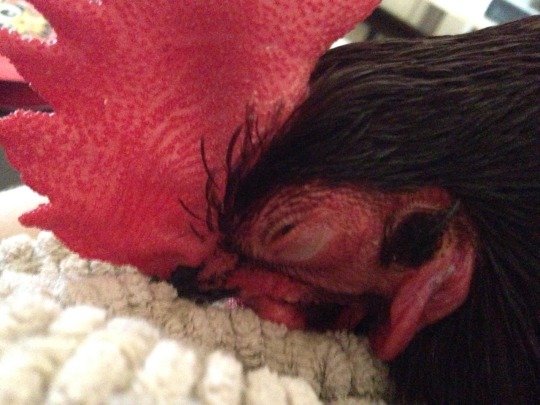Don't wanna be here? Send us removal request.
Photo

I took the list from funwithlanguages when I started learning spanish and added the spanish equivalents bit by bit as I learned them through Duolingo, Memrise and other sources.
First Verbs
be - ser (permanent) or estar (temporary)
there is - hay
have - tener
do - hacer
go - ir
want - querer
can - poder
need - necesitar
think - pensar
know - saber
say - decir
like - gustar
speak - hablar
learn - aprender
understand - entender
Conjunctions
that (as in “I think that…” or “the woman that…”) - que
and - y (if word after “and” begins with i or h you use e)
or - o
but - pero
because - porque
though - aunque
so (meaning “therefore”; e.g. “I wanted it, so I bought it”) - por eso
if - si
Prepositions
of - de
to - a
from - de
in - en
at (a place) - en
at (a time) - a
with - con
about - sobre
like (meaning “similar to”) - como
for (warning, this one has several meanings that you need to take care of) - por/para (Here is a link to understand the difference and use)
before (also as a conjunction) - antes de
after (also as a conjunction) - después de
during - durante
Question Words
who - quién // quiénes
what - qué
where - dónde
when - cuándo
why - por qué
how - cómo
how much - cuánto (-a) // cuántos (-as)
which - cuál // cuáles
Adverbs
a lot - mucho
a little - un poco
well - bien
badly - mal
only - sólo
also - también
very - muy
too (as in “too tall”) - demasiado
so (as in “so tall”) - tan
so much - tanto
more (know how to say “more … than …”) - más
less (know how to say “less … than …”) - menos
as … as … (e.g. “as tall as”) - tan… como…
best - mejor
worst - peor
now - ahora
then - entonces
here - aquí
there - allí
maybe - quizás
always - siempre
usually - normalmente
often - a menudo
sometimes - a veces
never - nunca
today - hoy
yesterday - ayer
tomorrow - mañana
soon - pronto
almost - casi
already - ya
still - todavía
enough - suficiente
Adjectives
the, a (technically articles) - el (masculine) & la (feminine) // un (masculine) & una (feminine)
this - esto
that - eso
good - bueno
bad - malo
all - todo
no - ninguno
many - mucho
few - poco
other - otro
same - mismo
different - diferente
enough - suficiente
one - uno
two - dos
first - primero
next - próximo
last (meaning “past”, e.g. “last Friday”) - pasado
last (meaning “final”) - último
easy - fácil
hard - difícil
early - temprano
late - tarde
important - importante
interesting - interesante
fun - divertido
boring - aburrido
beautiful - bonito
big - grande
small - pequeño
happy - feliz
sad - triste
busy - ocupado
excited - emocionado
tired - cansado
ready - listo
favorite - favorito
new - nuevo
right (meaning “correct”) - correcto
wrong - equivocado
true - cierto
Pronouns
Know them in the subject (“I”), direct object (“me”), indirect object (“to me”), and possessive (“my”) forms.
I - yo
you - tú
she - ella
he - él
usted = formal you
we - vosotros (all men/men & women) / vosotras (only women)
you (plural) - vosotros (all men/ men & women) / vosotras (only women)
they - ellos (all men/men & women) / ellas (only women) / ustedes (formal you plural)
Nouns
If your language has grammatical gender, then learn each noun as “the [noun]” with “the” in the correct gender. (e.g. in Spanish, instead of learning language = “idioma”, learn language = “el idioma”.) This will help you remember the gender.
everything - todo
something - algo
nothing - nada
everyone - todos
someone - alguien
no one - nadie
Spanish - el español
English - el inglés
thing - la cosa
person - la persona
place - el lugar
time (as in “a long time”) - el tiempo
time (as in “I did it 3 times”) - la vez
friend - el amigo
woman - la mujer
man - el hombre
money - el dinero
country - el país
(name of your home country; germany) - Alemania
city - la ciudad
language - el idioma
word - la palabra
food - la comida
house - la casa
store - la tienda
office - la oficina
manager - el jefe
job - el trabajo
work (as in “I have a lot of work to do”) - trabajo
problem - el problema
question - la pregunta
idea - la idea
life - la vida
world - el mundo
day - el día
year - el año
week - la semana
month - el mes
hour - la hora
mother, father, parent - la madre, el padre, el padre
daughter, son, child - la hija, el hijo, el niño
wife, husband - la esposa, el esposo
girlfriend, boyfriend - la novia, el novio
More Verbs
work (as in a person working) - trabajar
work (meaning “to function”, e.g. “the TV works”) - funcionar
see - ver
use - usar
should - deber
believe - creer
practice - practicar
seem - parecer
come - venir
leave - irse
return - volver
give - dar
take - tomar
bring - traer
look for - buscar
find - encontrar
get (meaning “obtain”) - conseguir
receive - recibir
buy - comprar
try - intentar
start - empezar
stop (doing something) - dejar de (hacer algo)
finish - terminar
continue - seguir
wake up - despertarse
get up - levantarse
eat - comer
eat breakfast (in several languages, this is a verb) - desayunar
eat lunch - almorzar
eat dinner - cenar
happen - pasar
feel - sentir
create (aka “make”) - crear
cause (aka “make”) - causar
meet (meeting someone for the first time) - conocer
meet (meaning “to bump into”) - encontrarse
meet (an arranged meeting) - reunirse
ask (a question) - preguntar
ask for (aka “request”) - pedir
wonder - preguntarse
reply - contestar
mean - querer decir
read - leer
write - escribir
listen - escuchar
hear - oir
remember - recordar
forget - olvidar
choose - escoger
decide - decidir
be born - nacer
die - morir
kill - matar
live - vivir
stay - quedarse
change - cambiar
help - ayudar
send - enviar
study - estudiar
improve - mejorar
hope - esperar
Phrases
hello - hola
goodbye - adiós
thank you - gracias
you’re welcome - de nada
excuse me (to get someone’s attention) - perdón
sorry - lo siento
it’s fine (response to an apology) - está bien
please - por favor
yes - sí
no - no
My name is - Me llamo
What’s your name? - ¿Cómo te llamas?
Nice to meet you. - Mucho gusto.
How are you? - ¿Cómo estás?
I’m doing well, how about you? - Estoy bien, ¿y tú?
Sorry? / What? (if you didn’t hear something) - ¿Cómo?
How do you say ______? - ¿Cómo se dice …?
What does ______ mean? - ¿Qué quiere decir …?
I don’t understand. - No entiendo.
Could you repeat that? - ¿Puedes repetirlo?
Could you speak more slowly, please? - ¿Puedes hablar más despacio, por favor?
Well (as in “well, I think…”) - Bueno
Really? - ¿De verdad?
I guess that… - Supongo que…
It’s hot. (talking about the weather) - Hace calor.
It’s cold. (talking about the weather) - Hace frío.
2K notes
·
View notes
Text
winter vocab in spanish ⛄️
⛄️ invierno (m) - winter
⛄️ nieve (f) - snow
⛄️ hielo (m) - ice
⛄️ copo de nieve (m) - snowflake
⛄️ frío (m) - cold
⛄️ muñeco de nieve (m) - snowman
⛄️ chocolate caliente (m) - hot chocolate
⛄️ muérdago (m) - mistletoe
⛄️ campanas (f) - bells
⛄️ bufanda (f) - scarf
⛄️ guantes (m) - gloves
⛄️ chaqueta (f) - jacket
⛄️ abrigo (m) - coat
⛄️ botas (f) - boots
⛄️ orejeras (f) - earmuff
⛄️ gorra (f) - hat
⛄️ patinar sobre hielo (v) - to ice skate
⛄️ esquiar (v) - to ski
⛄️ andar en trineo (v) - to ride a sleigh
⛄️ navidad (f) - christmas
⛄️ papá noel (m) - santa claus*
⛄️ jánuca (f) -hanukah
⛄️ menorá (f) - menorah
⛄️ kwanzaa/cuansa (f) - kwanzaa
⛄️ día del año nuevo (m) - new year’s day
⛄️ ¡felices fiestas! - happy holidays!
*in all, if not, most spanish speaking countries, the one who brings gifts to the children is el niño jesús (baby jesus)
888 notes
·
View notes
Text
Tomorrow will be good :)
0 notes
Text
La Ropa Vocabulario

La Ropa y Calzado
el abrigo — coat
la bata — robe
la corbata — tie
el impermeable — raincoat
el pijama — pajamas
la sudadera — sweatshirt
el traje — suit
el traje de baño — swimsuit
el pantalón vaquero, el pantalón tejano — jeans
el vaqueros de pitillo — skinny jeans
el chaleco — vest
las mallas — leggings
las medias — stockings
la bufanda — scarf
los gunates — gloves
la camiseta sin mangas — tanktop
la chaqueta de punto — cardigan
el sostén — bra
la ropa interior — underwear
las mangas (cortas/largas) — (short/long) sleeves
las zapatillas — slippers
los tenis — sports shoes, sneakers
las sandalias, las chanclas — sandals
las botas — boots
los tacones (altos) — high heels
los tacónes bajos — flats
el conjunto, el atuendo, el traje, la ropa — outfit
Complementos
el anillo — ring
los aretes — earrings
el bolso — purse
el collar — necklace
las gafas de sol — sunglasses
la gorra — cap
el gorro — winter hat (without brim)
la pulsera — bracelet
el reloj — watch
Características
cómodo — comfortable
incómodo — uncomfortable
Diseños
de cuadros — plaid
de lunares — polka dots
de rayas — striped
liso@ — plain
Materiales
de algodón — cotton
de cuero — leather
de lana — wool
vellón — fleece
licra — spandex
poliéster — polyester
Expressiones y Otros Descripciónes
estar de moda — to be in style
estar en oferta — to be on sale
probarse ropa — to try clothes on
quedar bien — to fit well
quedar mal — to fit badly
quedar grande — to be too big
quedar pequeño — to be too small
chabacan@, charr@ — tacky
en la onda — funky (stylish)
emocionante — exciting
arrugad@ — wrinkled
planchad@ — ironed
3K notes
·
View notes
Text
Sea and water vocabulary in Spanish


el océano - the ocean la laguna - the lagoon el lago - the lake el mar - the see el agua - the water agua salada - saltwater agua dulce - freshwater el río - the river la desembocadura - the river mouth el manantial - the spring la rivera - the bank el arroyo - the stream el dique - the ditch la ciénaga - the swamp
la bahía - the bay el canal - the canal la charca - the pond el charco - the puddle la cuenca - the basin/watershed la costa - the coast la orilla - the shore la marea - the tide las burbujas - the bubbles
el verano - the summer la isla - the island el archipiélago - the archipielago el embalse - the reservoir el estanque - the pond el golfo - the gulph
la marisma - the marsh el glaciar - the glacier el pantano - the swamp el estrecho - the narrow el estuario - the estuary la presa - the dam el puerto - the port la playa - the beach la arena - the sand
el pez - the fish el pescado - the fish (“pez” is the fish that lives in rivers, seas, etc. “pescado” lives in our dishes) la ballena - the whale el tiburón - the shark la mantarraya - the stingray la foca - the seal el delfín - the dolphin el pez dorado - the goldfish el pez globo - the blowfish el pulpo - the octopus la almeja / concha ;) - the clamp el caracol - the seashell (“caracol” also denotates the ground one, the snail) el calamar - the squid la medusa - the jellyfish la aguaviva - the jellyfish (literally “living water” are those transparent gooes that apear in the bay) el cangrejo - the crab
el barco - the ship el crucero - the cruise la canoa - the canoe
el abismo - the abyss las profundidades - the dephts abismo oceánico - oceanic abyss la fosa - the pit
VERBS:
sumergir(se) - to dive bucear - to dive
(the difference between “sumergirse” and “bucear” is that the first one is the action of going down in the water, “bucear” means to swim underwater)
nadar - to swim flotar - to float ir a la deriva - to drift navegar - to sail ahogar(se) - to drown hundir(se) - to sink beber / tomar - to drink tomar sol - to have a sunbath pescar - to fish remar - to row surfear - to surf aguantar la respiración - to hold the breath
2K notes
·
View notes
Text
I still take my drunk when he was run out hastily.....and I would like to give him to drink.....
0 notes
Text
Good night My dear
1 note
·
View note
Text
yesterday The last regret Not help to feed the dog to eat Sad
0 notes
Photo






How to draw eyes - tutorial x) Hope it’s at least a little bit usefull? I don’t know… is it?
4K notes
·
View notes
Text
Today,it will very warm weather! I am warming up for dog
0 notes






